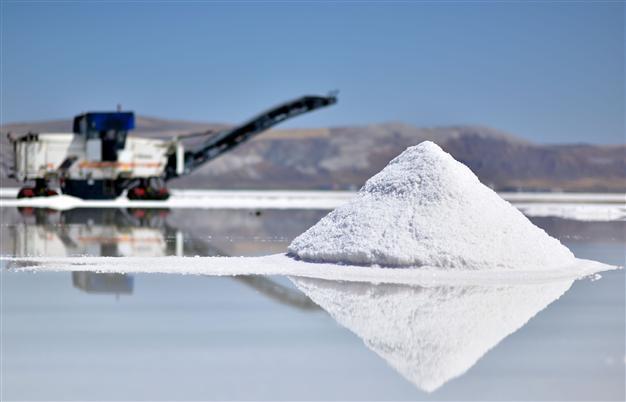Ten new companies acquire licenses to produce salt in ailing Lake Tuz
ISTANBUL

Lake Tuz, a protected area and a first-degree natural site, is known for the natural beauty of its salt dunes and is home to one of the world’s largest flamingo colonies. AA Photo / Murat Öner Taş
Ten new companies have received licenses to produce salt at Lake Tuz, a move that may further threaten the delicate lake that is already endangered due to the mass exploitation of its resources.An environment expert warned that the drying of the salty lake in Central Anatolia may accelerate following the start of the 10 companies’ operations.
“Banks of 100 kilometers will be built to allow the circulation of trucks for the 10 new facilities. Tons of excavated earth will be poured into the lake. When all of the 10 meter-wide banks are built, 1 million square meters of the lake’s surface will be covered with excavated earth. This earth will block the sources that feed the lake,” said Baran Bozoğlu, the head of the Environmental Engineers’ Chamber, explaining the upcoming changes.
Bozoğlu criticized officials and companies for ignoring court rulings for a stay of executions. “No action has been taken, despite the complaint filed by the Board for the Protection of Nature in July,” he said.
Lake Tuz, a protected area and a first-degree natural site, is known for the natural beauty of its salt dunes and is home to one of the world’s largest flamingo colonies. Over the last 40 years, however, the lake has shrunk to 50 percent of its original size, and environmentalists are sounding the alarm, as the uncontrolled use of its resources has not slowed down.
Bozoğlu accused the authorities of turning a blind eye to the threats facing the lake.
“With the building of the facilities, the water will be pumped inside the banks. This means the lake will obviously be dried. In other words, Lake Tuz is being swiftly dragged to its extinction,” he said.
















